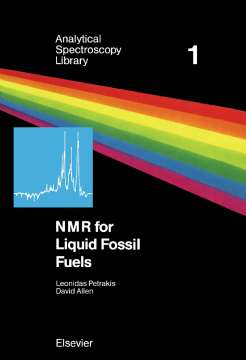
Additional Information
Book Details
Abstract
High resolution nuclear magnetic resonance (NMR) of liquid fuels has provided valuable information on the molecular structures present in these fuels. The chemical insight gained through NMR studies has the potential to enhance significantly the development of processes for the utilization of fossil energy. For this potential to be fully realized, users of NMR information must be able to communicate effectively with NMR experts. Conversely, NMR experts must understand the type of information that users will attempt to derive from their spectra. The goal of this book is to strengthen the lines of communication between NMR experts and users in the area of NMR of liquid fuels.
The book comprises two parts. The first part presents elements of relevant NMR phenomenology, including a definition of the most important NMR parameters, an introduction to Fourier transform NMR and a discussion of newer pulse techniques. Sufficient background material is presented to enable the reader to follow such techniques as spin echo, two-dimensional and polarization transfer experiments. These techniques are illustrated by extensive examples derived from fuel chemistry. The second part of the book addresses the interpretation of NMR spectra and is based, to a very large extent, on the work of the authors who have used NMR in a variety of applications in fossil fuels. This part describes in detail the three basic methods for interpreting NMR spectra of liquid fuels: average structural parameter calculations, average molecule construction and functional group analysis. The use of NMR in engineering calculations is also presented and should be particularly useful to those interested in processing of fossil fuels. Extensive examples are drawn from petroleum, shale oils, coal liquids and model systems. Computer programs for performing the characterizations from the spectra are provided.
The book will appeal to a wide range of professionals. With its emphasis on applications, it will be of particular interest to those who use NMR to characterize liquid fossil fuels or those who provide NMR assistance to fossil fuel scientists and technologists.
